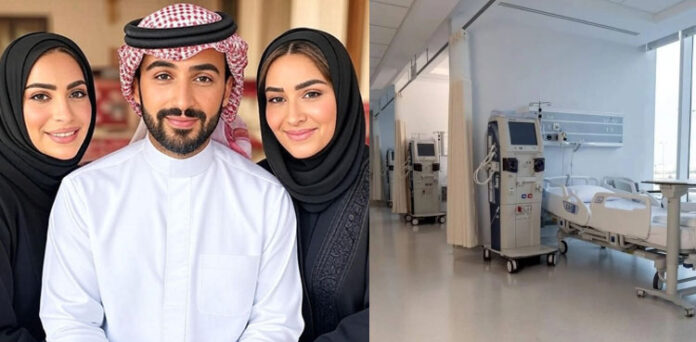A Story of Unlikely Solidarity
In a remarkable display of generosity, a woman in Saudi Arabia has donated part of her liver to save the life of her husband’s second wife. The case, which has been widely discussed on social media, has been hailed as an extraordinary example of compassion and humanity overcoming personal differences.
According to local media, 39-year-old Asma Khalid, the first wife of Dammam resident Majid Hassan, stepped forward to help her co-wife, 32-year-old Nadia Majid, who was battling severe liver disease. Doctors had warned that without an urgent liver transplant, Nadia’s survival chances were slim.
Search for a Donor Ends at Home
Majid’s family reached out to hospitals and relatives across the region in search of a suitable donor. Despite their efforts, no match was found. It was at this point that Asma volunteered to undergo medical testing.
The tests revealed a full compatibility match between Asma’s liver and Nadia’s medical requirements. Without hesitation, Asma decided to go ahead with the donation.
“I made this decision not out of pressure but for the sake of God and humanity,” Asma said. “Life and death are in God’s hands. If my sacrifice can save a life, what could be more rewarding?”
Successful Operation and Recovery
The transplant surgery was carried out at King Fahd Hospital in Dammam, one of Saudi Arabia’s leading facilities for organ transplants. According to hospital officials, the procedure was a success, and both women are recovering steadily.
Doctors explained that living-donor liver transplants are possible because the liver can regenerate, allowing a healthy donor to give a portion without long-term harm. However, the surgery requires rigorous testing to ensure compatibility and minimize risks for both patients.
Social Media Reaction: ‘A Victory for Humanity’
As news of the act spread online, thousands took to social media to praise Asma’s selflessness. Many described it as “a victory for humanity” and an example of moral courage that transcends personal rivalries.
One user commented, “This is not just the act of a woman—it is the act of humanity itself. Such examples promote tolerance, sacrifice, and love in society.” Others called for her story to be shared widely to inspire charitable acts and mutual compassion.
Cultural and Religious Context
In Saudi Arabia and other parts of the Muslim world, organ donation is permitted under Islamic law when it is aimed at saving a life. Acts of altruism, especially in complex family dynamics, are often viewed as reflections of deep moral and spiritual conviction.
Polygamy, while legal in the kingdom under Islamic jurisprudence, can sometimes lead to tension between co-wives. However, this case shows that empathy and selflessness can bridge even the most challenging personal relationships.
Medical Background: Liver Disease and Transplants
Liver disease is a growing health concern globally, with causes ranging from viral hepatitis to genetic disorders. According to the World Health Organization, liver-related illnesses cause over 1.3 million deaths annually worldwide.
Living-donor liver transplantation is considered a life-saving procedure in cases where deceased donor organs are not available. In Saudi Arabia, the Ministry of Health has actively encouraged voluntary organ donations to address shortages and save more lives.
A Legacy of Kindness
For many observers, Asma’s act will be remembered as more than just a medical intervention—it is a lesson in empathy, faith, and the willingness to put another’s life above one’s own comfort.
As both women continue to recover, their story serves as a reminder that compassion has the power to transform lives, even in situations where rivalry might be expected.
In the words of one social media post that went viral after the news broke:
“This is how humanity wins—not by competition, but by compassion.”















